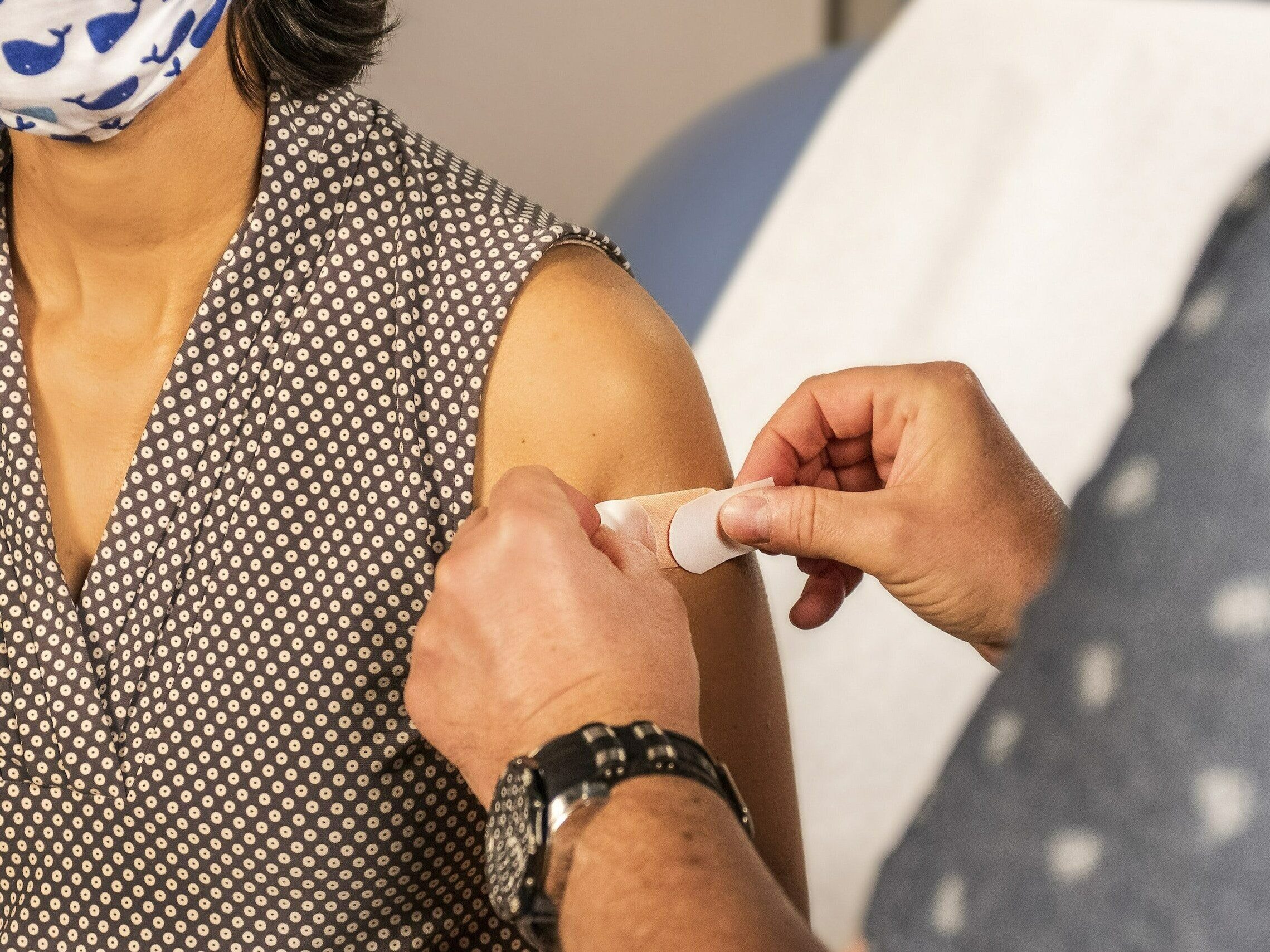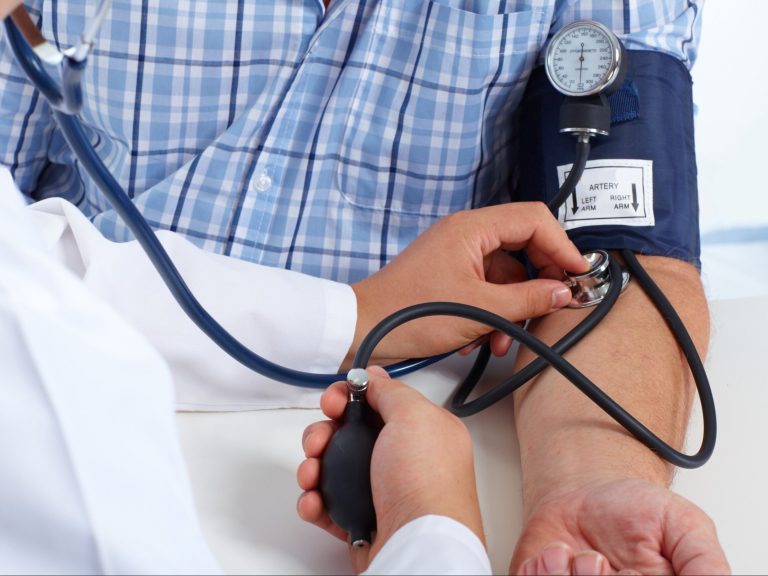My Patients Foundation: Eliminating financial barriers is important in the case of vaccinations

For many patients, the financial aspect of vaccination is very important. Patient organizations believe that vaccinations should simply be free, especially for people with the so-called risk groups, i.e. people aged 65+ and younger people with chronic diseases, whose risk of disease complications is significantly higher – says Magdalena Kołodziej, president of the management board of the My Patients Foundation.
The My Patients Foundation, together with the Polish Society of Family Medicine, has developed the first vaccination calendar for adults. Why was it necessary to create such a calendar? Until recently, vaccinations were only talked about in the context of children.
Magdalena Kołodziej: We associate vaccinations with childhood. We were vaccinated as children, and as adults we vaccinate our children. Such a child vaccination schedule has existed for many years, is widely available, and we are all aware of its existence. It is a cheat sheet for parents and doctors, informing and reminding about when and what vaccinations a child should receive. There was no such calendar for adult vaccinations.
Infectious diseases affect everyone, regardless of age; vaccinations should accompany us throughout our lives. The Polish Society of Family Medicine, in cooperation with the My Patients Foundation, has published an adult vaccination calendar as a simple document that can help both adults and the medical community find information on vaccinations recommended for specific people in one place.
One of the vaccines included in the calendar is the shingles vaccine. This is a relatively new vaccine, available in Poland since last year, although in some Western countries it was already available earlier, and in many countries it is very popular. Do you think that Poles are aware that it is worth getting vaccinated after the age of 50, even if there are no other risk factors, and that after the age of 65 practically everyone should be vaccinated?
Many people believe that the disease will not affect them and that they do not need vaccination. The vaccination calendar contains all vaccines recommended for adults.
The shingles vaccine is new and few people are aware of its existence or the need to be vaccinated against shingles.
It was quickly introduced to the reimbursed list – with a 50% refund in the group of people 65+ with comorbidities. Despite this 50% reimbursement, its cost may still be too high for many patients.
During a recent meeting organized by the Journalists for Health association, it was emphasized that this vaccination is very important because it protects not only against the disease, but also against postherpetic neuralgia, a chronic pain that can last even many years. It is also important for younger patients (over 18 years of age) who have serious comorbidities. But why do patients so rarely use vaccinations?
The basis is knowledge.
In December 2023, the My Patients Foundation conducted a survey entitled “Vaccination of adults”, which shows that one of the most important barriers preventing people from getting vaccinated is the lack of knowledge about the need for vaccination in adulthood. Patients do not know that vaccinations are needed; they don't know what vaccines are available; they do not know that a given vaccination is also recommended for adults.
The second barrier is the lack of a quick and simple vaccination route for adults. Currently, to get vaccinated you have to go a long way, several visits are necessary: to the doctor, to the pharmacy: it takes time. First, the patient must go to the doctor to get a prescription, then go to the pharmacy to buy the vaccine and return to the doctor to get vaccinated. This path can discourage even the most persistent. This is a common problem that requires a change in the health care services system – primarily strengthening the role of primary health care, greater inclusion of other medical professions in patient care, and better use of the potential of pharmacists.
Apart from the lack of knowledge and difficulties in accessing the vaccine, are there any other barriers that prevent patients from getting vaccinated or make vaccination more difficult?
Yes, the third barrier indicated by respondents is the financial aspect, which is often insurmountable. For many patients this is the most important aspect. If they have knowledge about vaccination and are willing to get vaccinated against any infectious disease, the financial aspect is very important.
Patient organizations believe that vaccinations should be free of charge, especially for people in the risk group, e.g. people aged 65 and over, as well as younger people, those with comorbidities and chronic diseases, who are at a significantly higher risk of disease complications. Such a change would certainly make it easier to get vaccinated.
If we want more people to get vaccinated, we need to think about eliminating these three barriers.
Could abolishing financial barriers mean that more people would benefit from vaccinations?
Definitely yes. If a person is determined and consciously wants to get vaccinated, it should be made easier for him or her. Financial problems affect a large group of people. They want to take care of their health, but they lack money for it. It is worth investing in all activities aimed at strengthening the health of the population.
As an organization, we recommend actions to eliminate this financial barrier so that financial access to vaccinations is as wide as possible.
Is it easy to spread awareness about the need to get vaccinated?
It is not, because many mistakes have been made. We definitely did not take advantage of the time when the pandemic was taking place, that is, when there was a discussion about vaccinations. At that time, there was quite a lot of talk about how important vaccinations were, but then the activity of anti-vaccination movements intensified and patients received contradictory information. Yet it is important to make society aware that vaccinations are safe, tested by specialists, and we need to do a lot to encourage people to take them. The My Patients Foundation carries out activities aimed at spreading knowledge about adult vaccinations (their scope, preventive value and safety), introducing an adult vaccination calendar, and eliminating barriers (e.g. recommendations to simplify procedures, improve accessibility).
We also draw attention to and appeal for urgent information activities in this area, carried out by institutions and organizations that are reliable for patients.
…
Shingles is an infectious disease manifested by the reactivation of latent infection with the varicella virus (Varicella zoster). After suffering from chickenpox, the virus “dormant” in our body and may become active at some point. 99 percent of the Polish population (taking into account adults) had contact with the varicella virus. After illness, it is not eliminated from the body. The virus lies dormant in the body and can become active when, for example, we are sick, weakened, or have cancer. It can then get out of control of our immune system and cause symptoms of shingles. Therefore, the vaccine is recommended: to all people over 18 years of age with serious diseases that weaken the immune system (e.g. cancer, kidney failure, after transplantation), as well as to all people over 50 years of age. The risk of severe disease and postherpetic neuralgia increases with age, so people over 65 years of age should be vaccinated.
The article was created as part of Shingles Awareness Week
Text: Anna Dembińska






